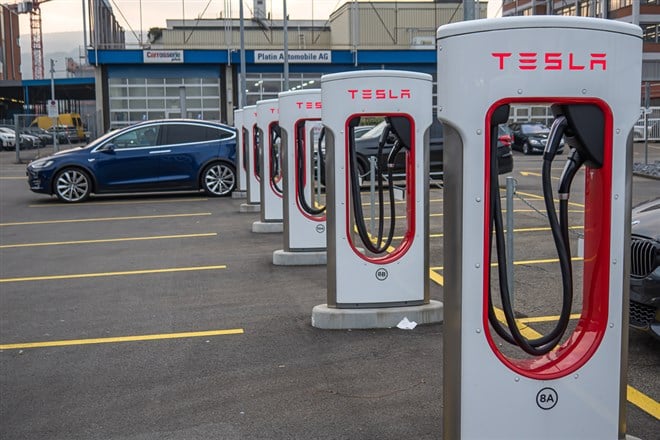
After losing almost two-thirds of its market value last year, Tesla, Inc. (NASDAQ: TSLA) is off to a slow start in 2023. Perhaps there was more to the December slide than tax loss selling.
After third-quarter results failed to excite the market, the electric vehicle maker’s stock slid further, closing out the year on its first-ever five-month losing streak. Bullish investors eagerly awaiting a comeback were greeted with disappointing Q4 production and delivery numbers to start the new year.
Tesla revealed that global EV deliveries were approximately 405,000 for the quarter and 1.3 million for all of 2022. While this represented 40% growth over 2021, it fell short of the market’s 420,000 forecasts and the company’s own multi-year growth target of 50%.
Softer-than-expected sales won't be the only concern when management presents Q4 financial results on January 25th. Profit margins, already pressured by input cost inflation, face further pressure from a recent ramp in promotional activity.
In late December, U.S. car buyers were offered a $7,500 discount and 10,000 free Supercharger miles if they bought a Model Y SUV or Model 3 sedan by year-end. This week, Tesla offered Chinese consumers similar incentives to take delivery by the end of February 2023.
Tesla’s recent sales growth figures have been strong (including 56% in Q3). Still, amid intensifying competition, the market is becoming skittish that the growth is happening solely to secure market share — and at the expense of profits.
While this has quickly parked Tesla in the rear of the S&P 500’s early 2023 return rankings, all hope isn’t lost. The EV revolution remains in the early stages, and Tesla’s leadership position is lucrative.
Does Tesla Still Have Good Long-Term Growth Prospects?
Despite the influx of competition from traditional and upstart automakers, Tesla is expected to have maintained its #1 ranking in global EV sales for the 5th consecutive year in 2022. It just became the first company to cross the 1 million unit mark in annual deliveries. Although its U.S. share has eroded, it still commands a 65% share of new domestic EV registrations.
Even if competitors cut further into Tesla’s dominance, they face an uphill battle in unseating the early mover. Tesla’s brand is synonymous with superior technology and a status symbol of sorts, especially among key demographics of younger consumers.
And with semiconductor shortages and supply chain issues improving, production and delivery figures should only strengthen. Management’s projection of 50% average annual production growth looks attainable, especially as new factories ramp and workers are eventually welcomed back. Periods of layoffs and rehires aren’t uncommon in the cyclical auto industry.
It’s also critical to remember that Tesla has only rolled out four vehicle models thus far. Auto industry executives forecast that EVs will account for more than half of all sales by the decade's end so plenty will be coming. Tesla’s wheels have been wildly popular thus far, and there aren’t signs of that slowing even as competitors emerge. Once like spotting a unicorn, seeing a Tesla in action is commonplace these days.
Later this year, the highly anticipated Tesla Cybertruck is expected to go into production. The radical-looking truck generates a lot of buzz among consumers, and pre-orders are over 1.5 million. Cybertruck will go head-to-head with the Ford F-150 Lightning and its comparable $40,000 starting price could make it a big winner.
Another development that could swing EV momentum back in Tesla’s favor is its new Semi for commercial transport. While Pepsi got first dibs, plenty more blue chip customers are lined up to take delivery, including Walmart, Anheuser-Busch, Sysco and even UPS. Cybertruck and Semi are yet to hit Tesla’s books but could easily spark the next wave of growth, not to mention renewed fervor around the stock.
Is Tesla Stock Now Undervalued?
Tesla shares have long traded at atmospheric P/E ratios upwards of 100x, 200x or more. Investors didn’t blink an eye until an economic slowdown, and margin pressures took center stage.
Today, Tesla trades around 38x trailing earnings and just 20x the consensus estimate for 2023 earnings. The S&P 500 is trading at roughly 17x the consensus 2023 earnings estimate. This means Tesla has only a slightly premium valuation despite generating well above-average profit growth. And with the stock being more attainable for retail investors following last year’s 3-for-1 split when the bulls come stampeding back to this former market darling, the reversal could shift into high gear fast.
Expect things to remain bumpy for Tesla as it navigates lingering pandemic challenges, a China slump and a potential recession. Over time, the road should be smooth, allowing Elon Musk and the company to exert their market strength in both existing and new EV categories.





